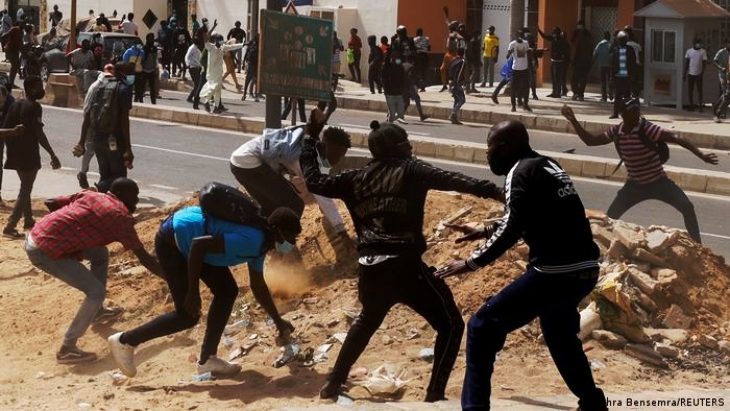Gambiaj.com – (DAKAR, Banjul) – There come moments in the life of a nation when it becomes necessary to pause, reflect, and raise the alarm. When governance — which should be the embodiment of the rule of law, ethics, and justice — begins to spiral into revenge, retaliation, and arbitrariness, silence becomes complicity.
The popular phrase “an eye for an eye, a tooth for a tooth — gâtsa-gâtsa” sadly captures the approach of certain authorities now steering the Republic: vindictive, emotional, reactive, and devoid of statesmanship.
Such a mode of governance is not only a betrayal of republican values but also a direct threat to national unity, democratic stability, and public trust.
A Republic Betrayed: From Civic Pact to Political Vendetta
At the heart of a republic lies a moral contract between the rulers and the ruled. This contract is anchored in respect for the public interest, the impartiality of the state, and the supremacy of fair justice.
Today, however, what we are witnessing in some corridors of power looks more like clan-based rule than democratic leadership. Yesterday’s opposition has transformed into self-proclaimed enforcers, consumed by a thirst for revenge against former adversaries.
Governance is no longer guided by wisdom, but by resentment. Public policy is no longer crafted — it’s wielded as a weapon to settle scores.
This governance style, rooted in emotion and punitive reciprocity, mirrors the ancient law of retaliation: an eye for an eye, a tooth for a tooth.
And at times, it’s even worse — the addition of “gâtsa-gâtsa“, a colloquialism for chaos and excess, symbolizes the systematic destruction of anything seen as opposition. Public interest no longer drives action; instead, governance becomes a vehicle for settling personal or political debts.
Democracy Undermined: Where Is the Republican Ethic?
Democracy is not merely about holding elections — it is a governance system founded on values: tolerance, pluralism, dialogue, and balance of powers. When a government — elected or otherwise — neglects these pillars, it loses legitimacy in the eyes of history.
Governing is not about humiliating your rivals. It’s not about exacting revenge on former leaders, no matter their failures. It’s not about responding to hatred with hatred or injustice with further injustice. Leadership requires greatness of spirit, humility, and responsibility.
Yet today, too many leaders act as though electoral legitimacy grants them unrestrained power. They forget that political office is a loan, not a right; a duty, not a privilege. Politics should not be a gladiator arena. The Republic is not a battleground for wounded egos.
The Gâtsa-Gâtsa Danger: When the State Becomes a Jungle
Gâtsa-gâtsa — that everyday word evoking disorder, confusion, and unrestrained brutality — has sadly become a living metaphor for our current reality.
Arbitrary dismissals, selective arrests, thinly veiled threats, divisive rhetoric, and state-sponsored propaganda against dissenting voices all point to a methodical unraveling of the rule of law.
Fear replaces trust. Party loyalty trumps competence. Ideology overtakes administrative rigor.
When governance is driven by chaos, with no clear vision and vengeance as the sole compass, the entire country is dragged into uncertainty and turmoil. And it is always the most vulnerable — those who hoped for real change — who suffer first and most.
A Call for a New Direction: Governance Beyond Revenge
There is still time to return to what matters. The Senegalese people — mature and resilient — are not looking for improvised enforcers or destroyers of the old order. They are calling for builders, visionaries, and men and women capable of healing past wounds without repeating past mistakes.
We need leadership that transcends bitterness — that can channel anger into constructive proposals, turn frustration into innovation, and transform collective pain into a shared ambition. This does not mean forgetting past wrongs, but it does mean refusing to let them justify democratic regression.
Governing Is About Elevating, Not Crushing
The Republic is not about who is strongest. It is about organizing life together with dignity, justice, and fairness. True leadership is about extending a hand, even to those who once struck. It is recognizing that forgiveness can be just as powerful a political act as punishment.
Senegal deserves more than leaders consumed by vendettas. It deserves leaders aware of the nobility of their mission.
Let us break the cycle of “an eye for an eye, a tooth for a tooth” and move deliberately toward a governance of clarity, inclusion, and long-term vision.
The people are watching. History will judge.
The author is an international development expert, a writer, and an advocate for national transformation.










